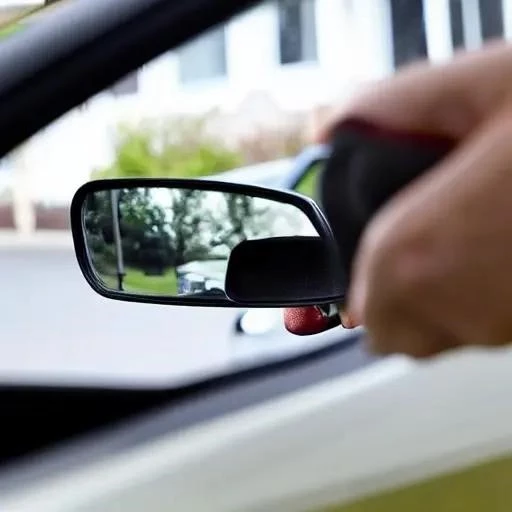
The day your teenager gets their driver’s license is a milestone, a blend of pride and sheer terror. It signifies newfound freedom for them, but also introduces a whole new realm of responsibility and potential risks for you. While celebrating this achievement, it’s absolutely crucial to instill safe driving habits from the very beginning. Equipping your teen with the knowledge and skills to navigate the roads responsibly is the most effective way to ensure their safety, and the safety of others. We’ll explore incredibly effective strategies and essential precautions that can significantly reduce the likelihood of accidents and promote confident, conscientious driving.
Navigating the open road requires more than just knowing the rules; it demands situational awareness, responsible decision-making, and the ability to react appropriately in unexpected circumstances. By actively engaging in their driving education and continuously reinforcing safe practices, you can profoundly impact your teen’s driving behavior. This proactive approach helps lay the groundwork for a lifetime of responsible driving habits, minimizing the chances of incidents and fostering a culture of safety behind the wheel. Let’s delve into specific areas you should focus on to prepare your teen for the challenges and joys of driving.
| Category | Information |
|---|---|
| Topic | Teen Driving Safety |
| Focus | Providing essential safety tips and strategies for parents and teens to promote responsible driving habits. |
| Importance | Reduces the risk of accidents and injuries by equipping teens with the necessary knowledge and skills. |
| Key Areas | Distracted driving, impaired driving, speed management, vehicle maintenance, and defensive driving techniques. |
| Resources | Parents, driving schools, government agencies (e.g., DMV), and online safety resources. |
| Website | NHTSA ‒ Teen Driving |
Distraction-Free Driving: The Ultimate Shield
In today’s hyper-connected world, distracted driving has become a major epidemic, particularly among young drivers. Smartphones, with their constant notifications and tempting apps, are a leading cause of accidents. Establish a strict “no phone” policy while driving – no texting, calling, or using social media. Encourage your teen to put their phone in the glove compartment or trunk to eliminate temptation. Consider using apps that automatically silence notifications and block calls while the vehicle is in motion. This simple, yet remarkably effective, step can significantly reduce the risk of accidents stemming from divided attention. By fostering this discipline, you can protect your teen from the perils of multitasking behind the wheel, thereby creating a safer driving experience for everyone involved.
Impaired Driving: A Zero-Tolerance Stance
Make it unequivocally clear that driving under the influence of alcohol or drugs is absolutely unacceptable. Have open and honest conversations about the dangers and consequences of impaired driving, emphasizing the potential for devastating accidents, legal repercussions, and long-term health issues. Explore hypothetical scenarios and encourage your teen to develop strategies for avoiding situations where they might be tempted to drive impaired. Offer them a safe and judgment-free way to call you for a ride, no questions asked, if they ever find themselves in a compromising situation. This unwavering commitment to a zero-tolerance policy serves as a powerful deterrent, reinforcing the gravity of the issue and promoting responsible decision-making.
Speed Management: Mastering the Art of Control
Speeding is a significant factor in many teen driving accidents. Teach your teen the importance of adhering to speed limits and adjusting their speed based on road conditions, weather, and visibility. Explain the physics of braking distance and the exponential increase in stopping distance as speed increases. Encourage them to maintain a safe following distance and to anticipate potential hazards. Consider using vehicle features like speed limit alerts and adaptive cruise control to help them stay within safe speed ranges. By instilling a deep respect for speed limits and promoting a proactive approach to speed management, you are equipping your teen with the skills to mitigate risks and maintain control in challenging driving scenarios. This proactive mindset is essential for navigating the roads safely and responsibly.
Vehicle Maintenance: A Proactive Approach to Safety
Regular vehicle maintenance is paramount to ensuring safe and reliable operation. Teach your teen basic vehicle maintenance tasks, such as checking tire pressure, fluid levels, and lights. Emphasize the importance of regular oil changes and tire rotations. Encourage them to report any unusual noises, vibrations, or performance issues immediately. A well-maintained vehicle is less likely to experience mechanical failures that could lead to accidents. By involving your teen in the upkeep of their vehicle, you are fostering a sense of responsibility and promoting a proactive approach to safety, thereby reducing the likelihood of unforeseen incidents.
Defensive Driving: Anticipating the Unexpected
Equip your teen with defensive driving techniques to help them anticipate and avoid potential hazards. Teach them to scan the road ahead, be aware of their surroundings, and anticipate the actions of other drivers, pedestrians, and cyclists. Encourage them to maintain a safe following distance, use their mirrors frequently, and signal their intentions clearly. Enroll them in a defensive driving course to further enhance their skills and knowledge. By embracing defensive driving principles, your teen can become a more proactive and responsible driver, capable of navigating unpredictable situations with confidence and skill, ultimately reducing the risk of accidents.
By implementing these essential safety tips and fostering a culture of responsible driving, you can significantly reduce the risks associated with teen driving. Remember, ongoing communication, consistent reinforcement, and a commitment to leading by example are crucial to shaping your teen’s driving behavior and ensuring their safety on the road. Embrace this opportunity to empower your teen with the knowledge and skills they need to become safe, responsible, and confident drivers, making their journey on the road a safe and enjoyable one.
